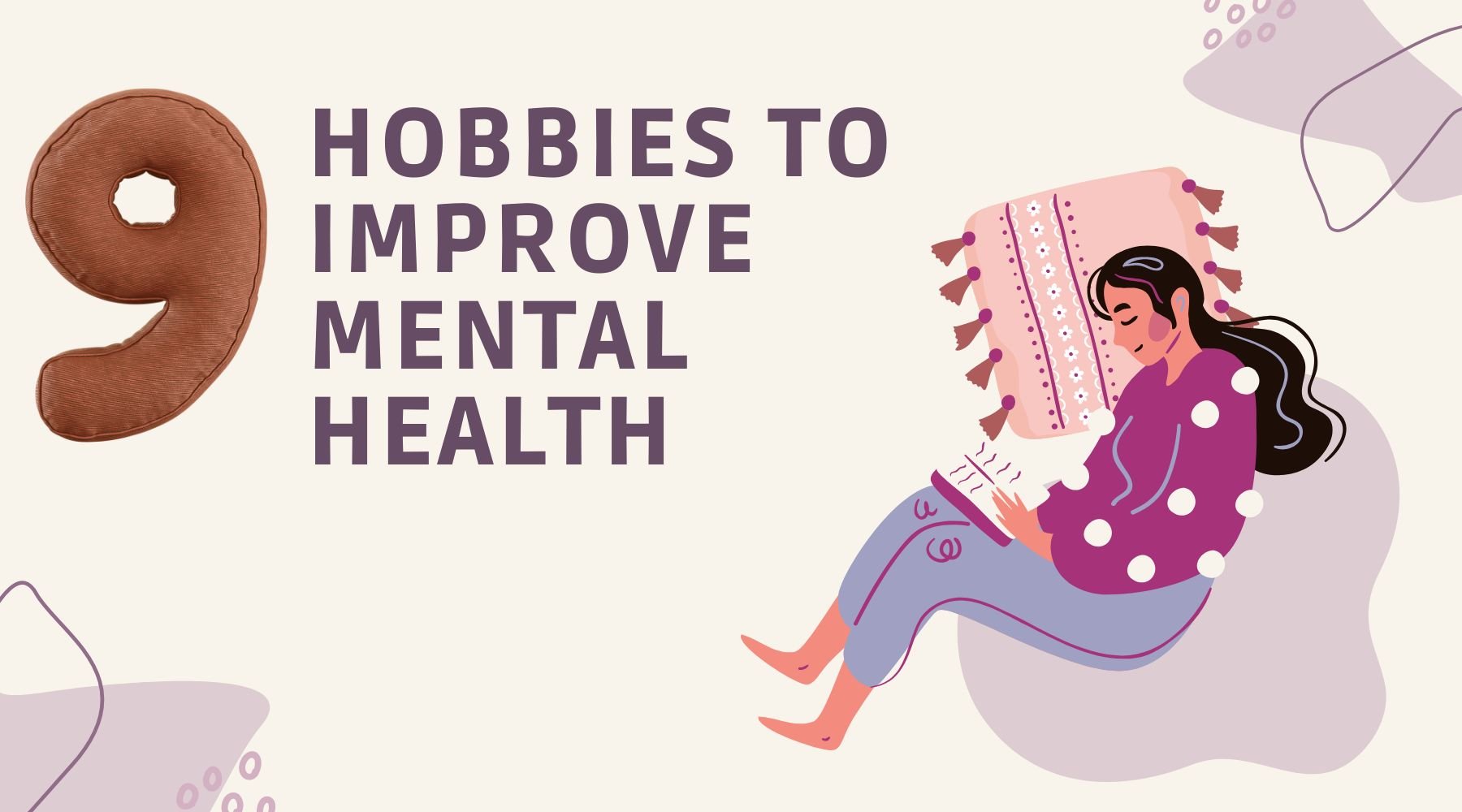Hobbies are a must-have to get through life with your sanity in tact. They help stop you thinking about work, money, or the never-ending list of things that need to be done that you don't have enough time in the day to get around to doing. Unplugging is a necessity. Here's a quick guide of some hobbies to help you improve your mental health.
9 Therapeutic Hobbies to Improve Your Mental Health
1. Sports

To some sports fans, sports are almost religious. Every Saturday, friends gather together to either go watch the game together, or gather around the TV and watch their team play. The most popular sports in America are basketball, ice hockey, baseball, American football, golf, boxing and mixed martial arts (MMA).
2. Meditative hobbies

Meditation is hard to quantify as a hobby as it can become more like a lifestyle. However, there are plenty of meditative hobbies that can help you quiet the mind, and focus on quiet activities that lets your mind rest from everyday woes. Meditative hobbies are those that let you practice meditation without having to sit still for what can feel like an eternity. If you need to keep your hands busy, try hobbies like knitting, crocheting, adult coloring books, and walking. The sort of slow activities that you can do while at the same time, getting into a rhythm of inhaling and exhaling - deep breathing exercises while doing something slow and easy.
3. Aquarium Therapy

Watching colorful fish swim back and forth in a fish tank can be therapeutic. Technically, you could categorize it as “animal-assisted therapy”. Moreover, tanks can be aquascaped with any number of aquatic plants, and you don’t need to keep fish. You could keep turtles. For aquariums, you can opt for saltwater fish, add corals to give them a place to hide, or have a freshwater tank setup. For beginners, freshwater fish is more forgiving. There’s a bigger learning curve, and a larger expense in setting up and maintaining a saltwater aquarium. Start with the simplest (freshwater aquarium), see if you like it, and if so, expand into saltwater fish keeping.
4. Birdwatching

Birdwatching is among the most popular wildlife recreational activity. A 2022 report by the Fish and Wildlife Service revealed 146.5 million people are backyard enthusiasts, and 73 million traveled to watch wildlife. Birdwatching is one of the easiest and cheapest ways to get started observing wildlife from your window. A pair of binoculars and some bird identification books is all you need to get started.
It’s also a hobby that you can expand your knowledge on and get more out of when you go on vacation. Starting out, you’ll be using field guides for the birds in your locality. When you go on vacation, it’s the perfect time to pack away a new field guide of the birds in different regions. For example, the Birds of South-East Asia (Collins Field Guide) book may be a good book to take on a trip to Thailand. Wherever your travel is taking you next, buy a bird book as the field guide and see how many you can identify.
5. Dancing as couple hobby

For couples, married or not, don’t let the romance go out and stop dating. Hobbies done together are memories shared. Line dancing, and ballroom dancing are two types of dances that are likely to have local classes near you. Go along and try it. Take some lessons if you feel it’ll help. When you’re traveling, seek out national dances. Many countries have national styles of dance. In America, folk music is usually celebrated with a hoedown, a bit like a barn dance. In Scotland, they have ceilidh's. In Mexico, couples do the Mexican Hat Dance. In Greece, there's the Sirtaki (Zorba's dance), France hasThe bourrée, and Spain has the Flamenco.
6. Puzzling

Puzzles are better when tackled together. Team up with your significant other and pick a puzzle to complete together. It could be 1,000 piece 2D jigsaw with pretty visuals, or a 3D wooden puzzle, or an entire DIY book nook kit with one person doing the painting, the other, the assembling. The activity itself is a stress-reliever, but once the puzzle is completed, it’s the dopamine release that gives you the pick-me-up and the attitude to do it all again with a different puzzle or a different type of puzzle.
7. Try something new!

Community calendars are terrific resources for activities you can find near you. You don’t have to go out on a date. You can peruse the local community calendar for ideas that can be done at home for a cheap date night in. Taking a random location of “Logan square Chicago Illinois, we discovered the Logan Chamber, which reads like a guide to the City. In it, there’s a business advertising “Caribbean Inspired Breakfast and Lunch”. There’s also a French Bakery and a cocktail bar with a Mexican-Japanese theme. Each of those are ideas you can take to organize your own date night. Team up in the kitchen and make Caribbean recipes. For the evening, make some cocktails inspired from a different country. Some Japanese cocktails are Sake Bombs, Tamagozake, and Chuhai. For Mexican cocktails, you could have The Michelada, Paloma, and for fans of spice, The Siete Chiles.
Check your nearest Chambers of Commerce, or browse the Chambers of different district for ideas of things to try together.
8. Soap carving

Parents can make bath time more fun by carving cool shapes from a bar of soap. Carve teddy bears, a rocket ship, space craft, fish, sea shells, sea dragons. Anything you can think of, draw it on paper, cut the shape out, attach it over a bar of soap and carve out the shape. Then take a paper clip or a needle and carve the intricate details into the soap to make it more artsy. All the shavings can be used to make a smaller bar of soap by gently heating it with water, and using a standard cookie cutter to shape into whatever design you use. It could be a small flower, a duck, or other animal.
9. Bushcrafting

Bushcraft is intense, and can be extremely freeing as it pits you with nature. Immersing yourself in the wilderness, living off the land, either in a tent for a week or two, or taking up backpacking where you carry as light a kit as you can muster and make do with what you have. The basics are camping essentials. Somewhere to sleep, things to eat and drink, and survival gear like a knife, fire starter and cooking equipment. If you’re interested in taking up trekking, where you explore - on foot - national parks and forests, getting some bushcraft skills under your belt can serve you well, because studies show, day hikers are the people most likely to end up in a survivalist situation, where your bushcraft skills can mean you survive. The outdoors can be dangerous when you’re unprepared. Knowledge is power. Once you have the skills mastered to survive off the beaten path, you’ll be able to unplug, be at one with nature in the wilderness, with the much-needed contemplative time to reflect, meditate, and return rejuvenated.




Share:
How Book Nook Kits Can Transform Video Game Storage Shelves
9 Bookshelf Accessories Every Globetrotter Needs